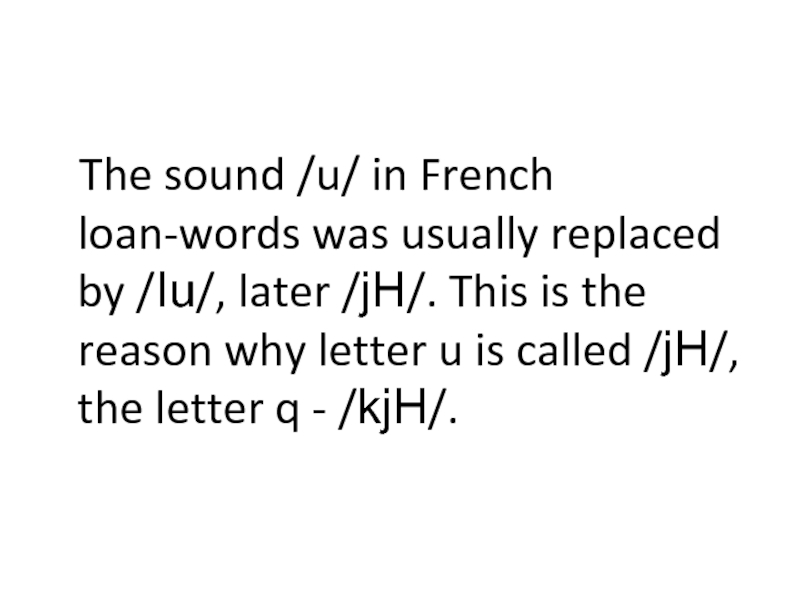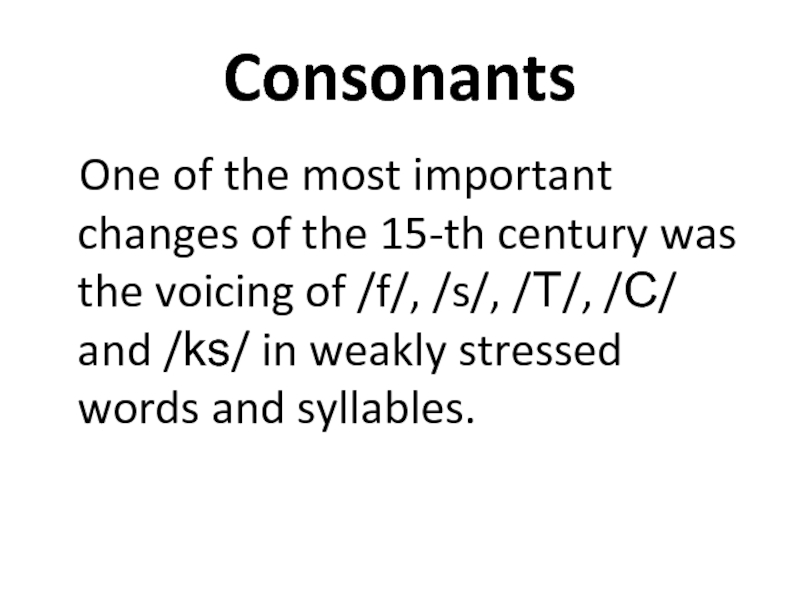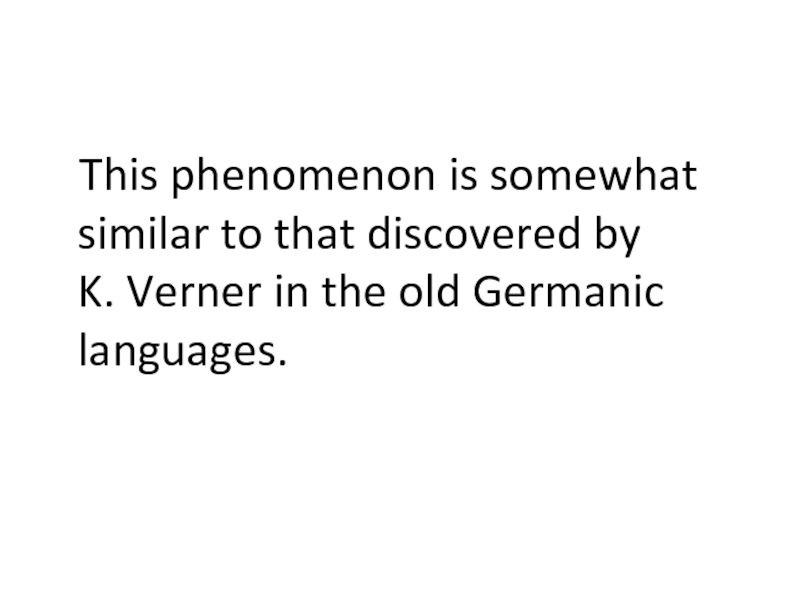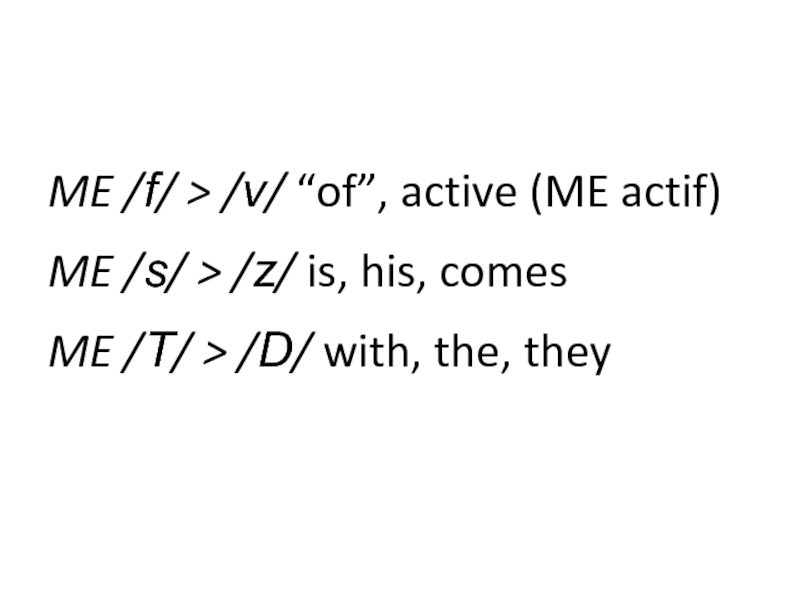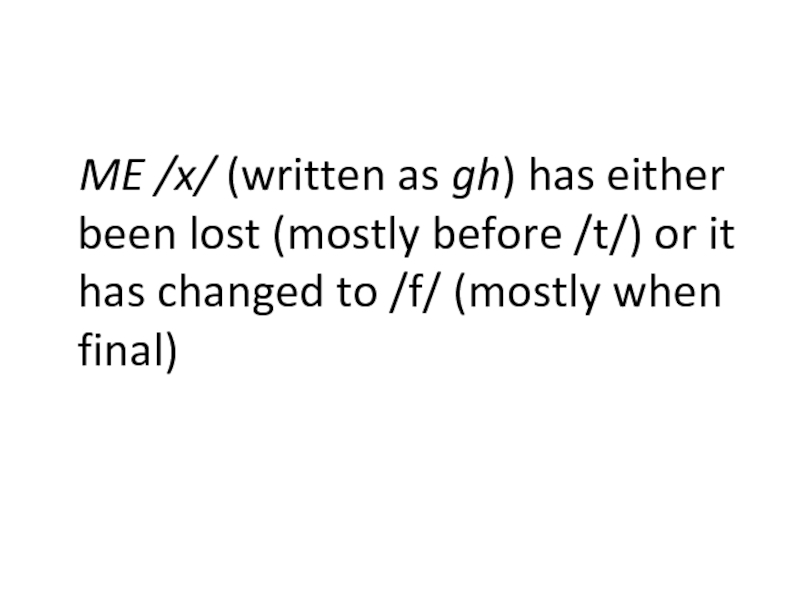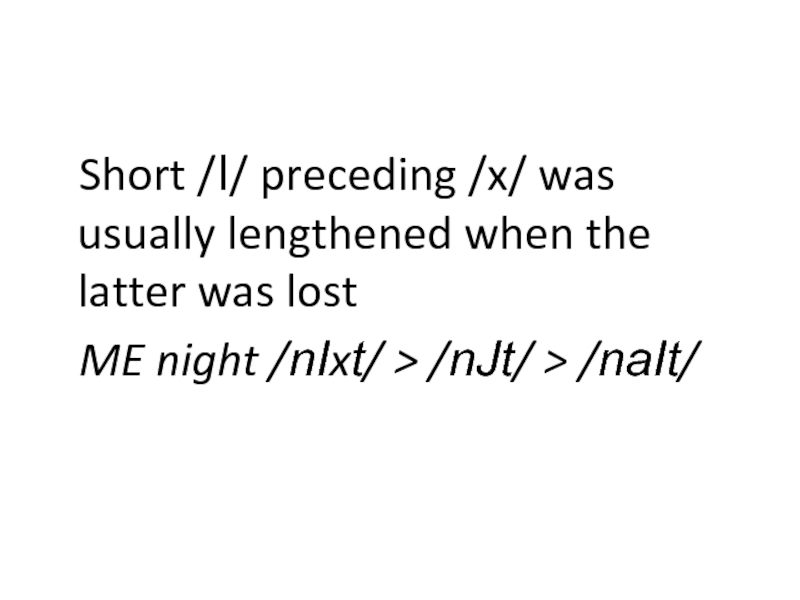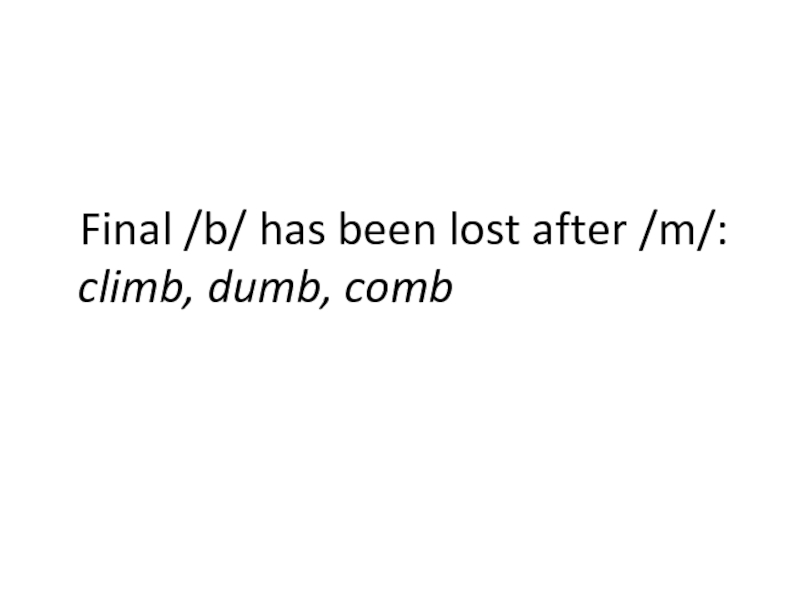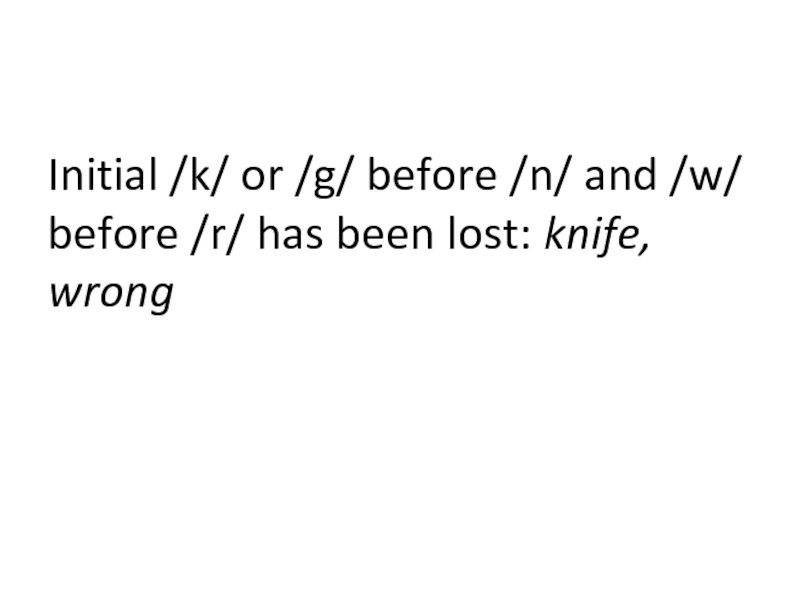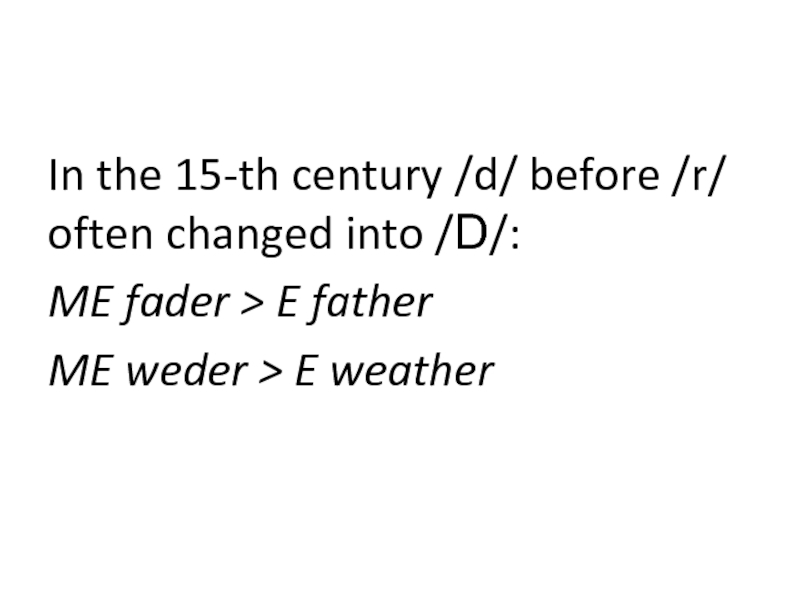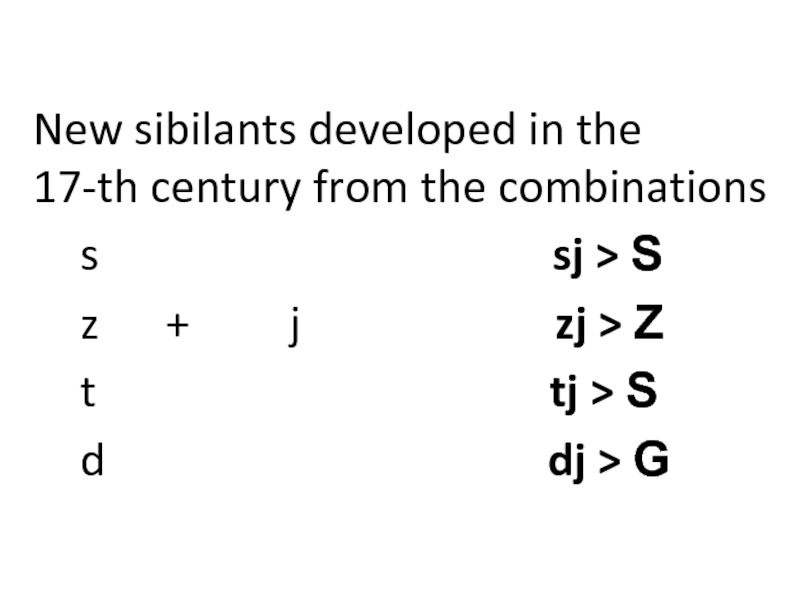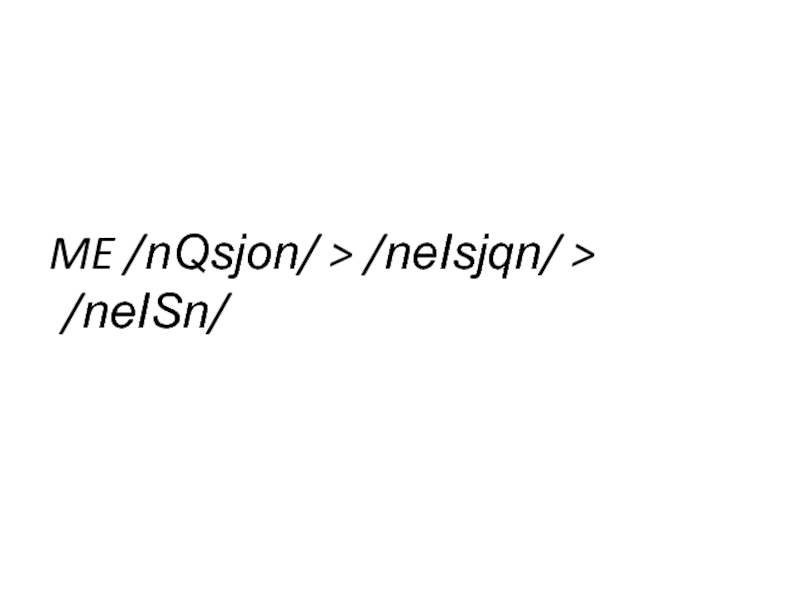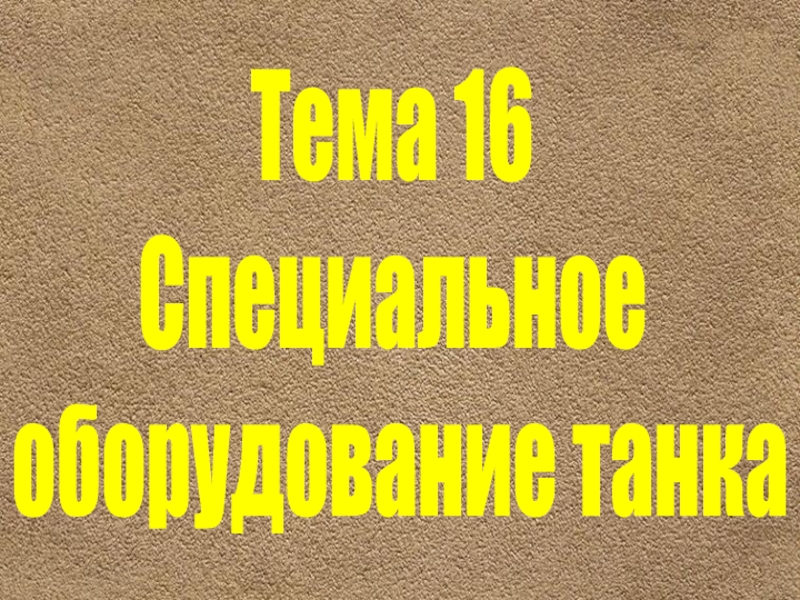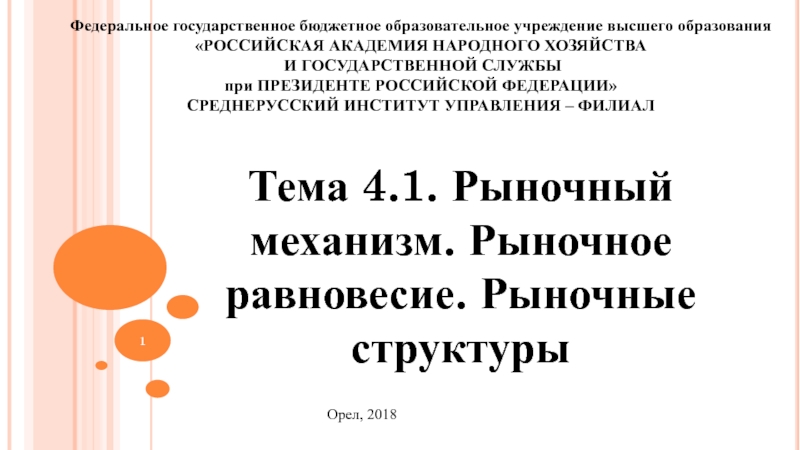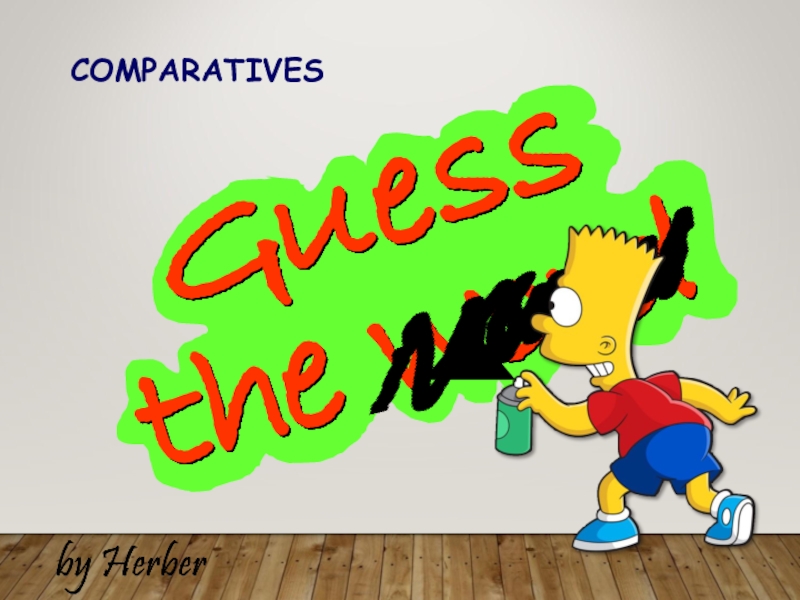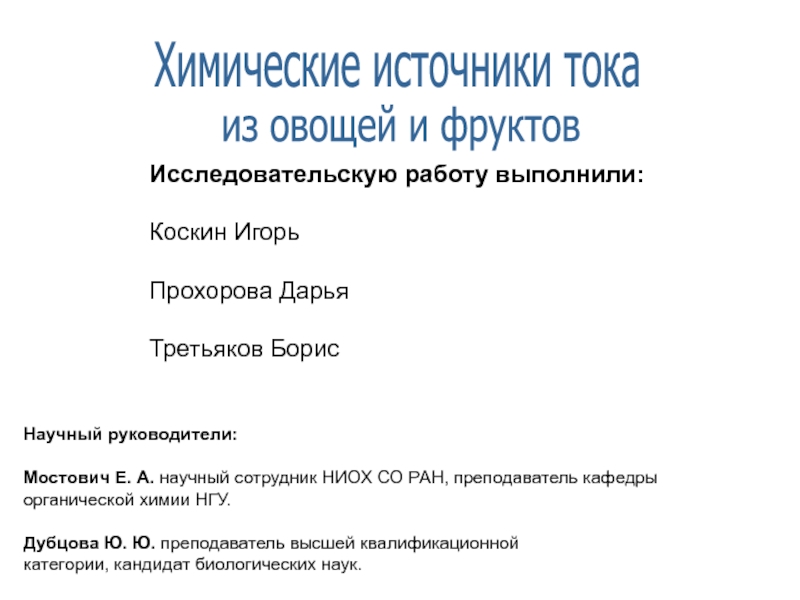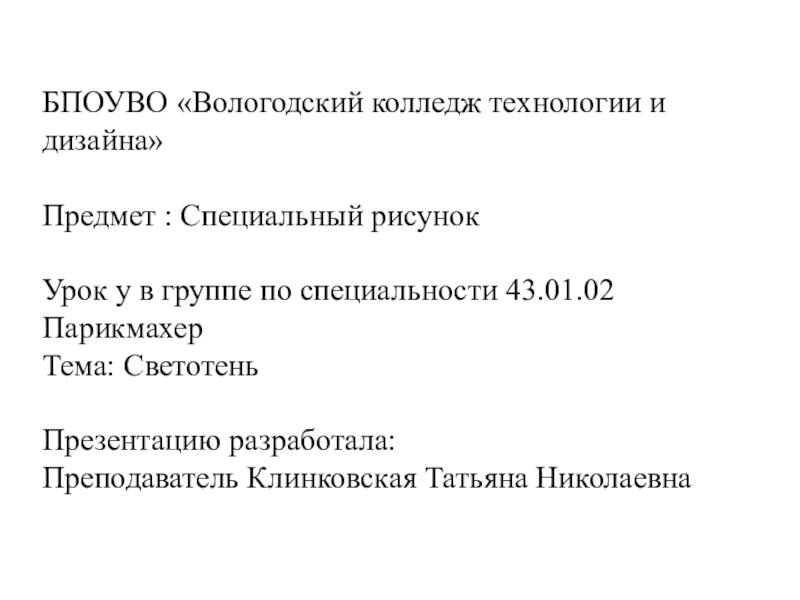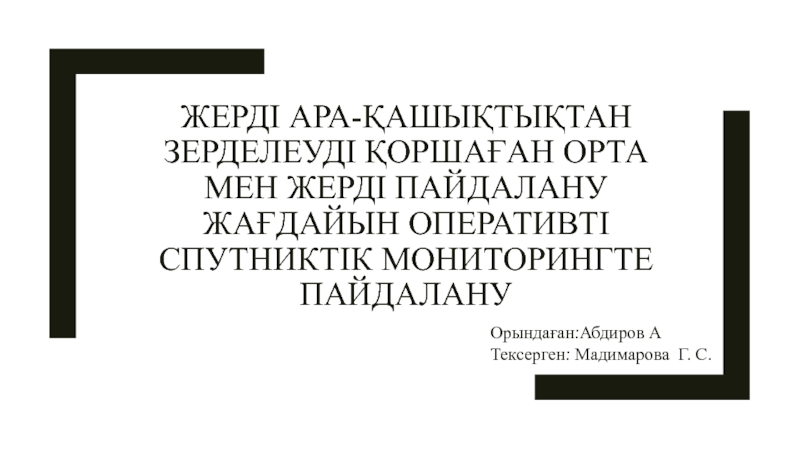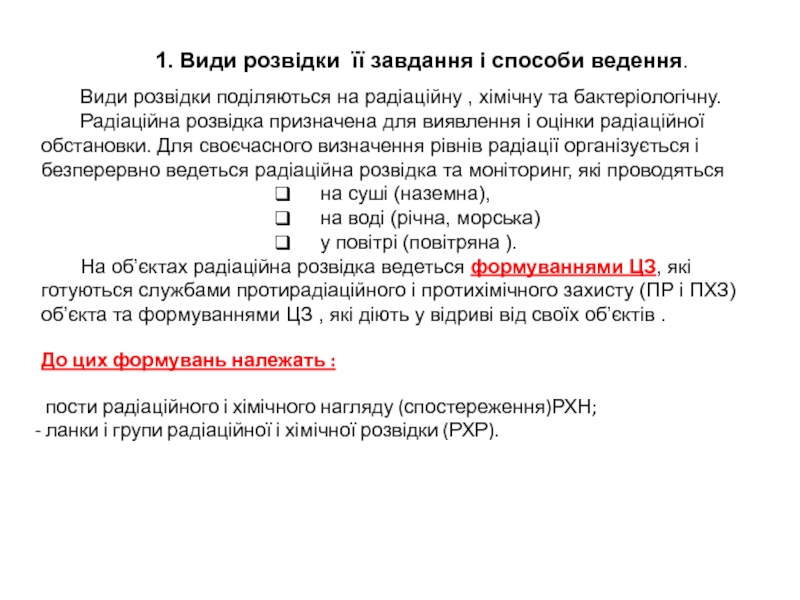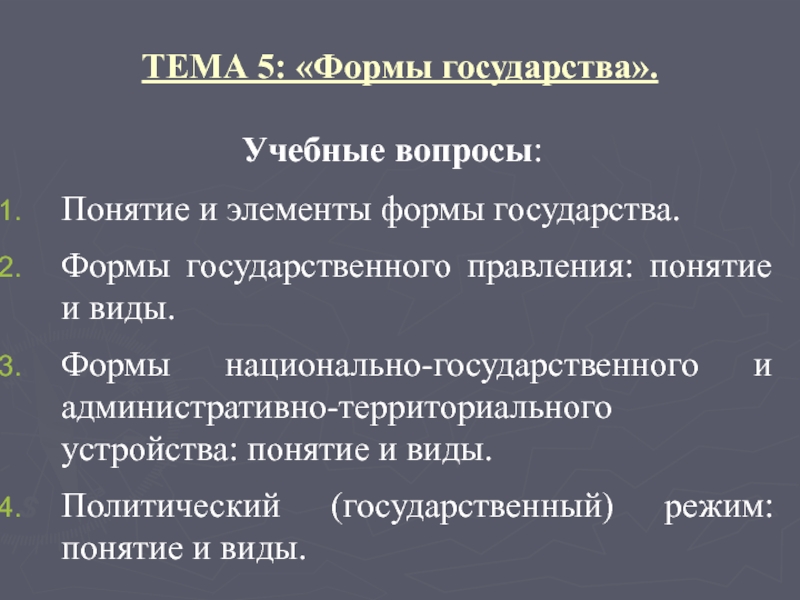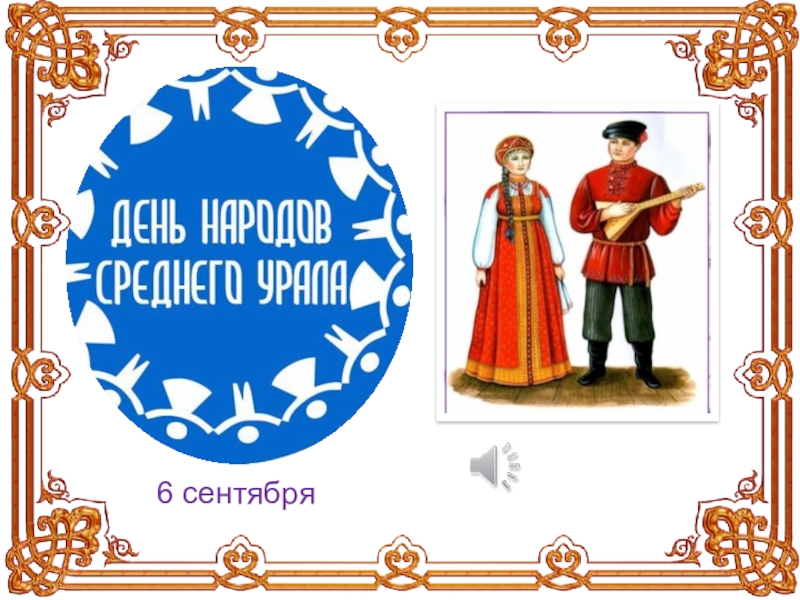Разделы презентаций
- Разное
- Английский язык
- Астрономия
- Алгебра
- Биология
- География
- Геометрия
- Детские презентации
- Информатика
- История
- Литература
- Математика
- Медицина
- Менеджмент
- Музыка
- МХК
- Немецкий язык
- ОБЖ
- Обществознание
- Окружающий мир
- Педагогика
- Русский язык
- Технология
- Физика
- Философия
- Химия
- Шаблоны, картинки для презентаций
- Экология
- Экономика
- Юриспруденция
NE Phonetic Changes: the Great Vowel Shift
Содержание
- 1. NE Phonetic Changes: the Great Vowel Shift
- 2. The Great Vowel Shift is the major
- 3. The Great Vowel Shift is the series
- 4. These changes can be called “independent” because
- 5. The Great Vowel Shift
- 6. Слайд 6
- 7. Thus the essence of the shift is
- 8. The Great Vowel Shift was not followed
- 9. During the shift even the names of some English letters were changed.
- 10. ME a / R/
- 11. ME o /
- 12. The Great Vowel Shift didn’t add any
- 13. every long vowel and some diphthongs were
- 14. Changes of Short Vowels in Early
- 15. ME /a/ normally changed into /x/ME cat
- 16. After /w/ sound /a/ was rounded and
- 17. Short /V/ was delabialized in the 17-th
- 18. The same sound is observed in “blood,
- 19. A preceding labial consonant usually presented the delabialization of /u/ as in: full, pull, bull.
- 20. Diphthongs ME diphthongs /aI/ and /eI/
- 21. ME /aV/ was monophthongised and became /L/
- 22. The sound /u/ in French loan-words was
- 23. Consonants One of the most important
- 24. This phenomenon is somewhat similar to that
- 25. ME /f/ > /v/ “of”, active (ME
- 26. ME /C/ > /G/ knowledge (ME knowlenche), Greenwich /'grInIG/ME /ks/ > /gz/ examine, exhibit, exact
- 27. ME /x/ (written as gh) has either
- 28. ME daughter /daVxtqr/ - E /dLtq/eight /eixt/
- 29. Short /I/ preceding /x/ was usually lengthened
- 30. Final /b/ has been lost after /m/: climb, dumb, comb
- 31. Final /ng/ has been reduced to /N/ME thing /Ting/ > NE /TIN/
- 32. Initial /k/ or /g/ before /n/ and /w/ before /r/ has been lost: knife, wrong
- 33. In the 15-th century /d/ before /r/
- 34. New sibilants developed in the
- 35. ME /nQsjon/ > /neIsjqn/ > /neISn/
- 36. Скачать презентанцию
The Great Vowel Shift is the major event in the historical development of English vowels. The Great Vowel Shift involved the change of all ME long monophthongs and some of the
Слайды и текст этой презентации
Слайд 3The Great Vowel Shift is the series of changes of
vowels between the 14-th and 18-th centuries. All long vowels
became closer or were diphthongized.Слайд 4These changes can be called “independent” because they were not
caused by definite phonetic conditions in the syllable or in
the word. These changes affected regularly every stressed long vowel in any position.Слайд 7Thus the essence of the shift is the narrowing of
all the long vowels and diphthongization of the narrow long
ones.Слайд 8The Great Vowel Shift was not followed by any regular
spelling changes which contribute greatly to the present discrepancy between
the spoken and written English.Слайд 12The Great Vowel Shift didn’t add any new sounds to
the vowel system. But it was the most profound and
comprehensive change in the history of English vowels:Слайд 13every long vowel and some diphthongs were “shifted” and the
pronunciation of all the words with these sounds changed
Слайд 14
Changes of Short Vowels in Early NE
The short vowels were
more stable than the long vowels. Only two short vowels
(out of 5) underwent certain changes. These are /a/ and /u/Слайд 15ME /a/ normally changed into /x/
ME cat /kat/ - NE
cat /kxt/
ME glad /glQd/ - NE glad /glxd/
ME man /man/
- NE man /mxn/Слайд 17Short /V/ was delabialized in the 17-th century and it
developed into a new sound /A/
e.g. cup, son, sun,
upСлайд 18The same sound is observed in “blood, flood, mother” in
which /H/ was shortened (before the 17-th century).
ME blod >
NE /blHd/ > /blud/ > /blAd/Слайд 19A preceding labial consonant usually presented the delabialization of /u/
as in: full, pull, bull.
Слайд 20
Diphthongs
ME diphthongs /aI/ and /eI/ were gradually levelled under /eI/,
the spelling was ay/ai
ME day – NE day
ME wey
– NE wayME seil – NE sail
Слайд 21ME /aV/ was monophthongised and became /L/ as in “paw,
law, cause, pause". ME /eV/ > /IV/ which soon became
/jH/ as in “new, dew, view”.Слайд 22The sound /u/ in French loan-words was usually replaced by
/Iu/, later /jH/. This is the reason why letter u
is called /jH/, the letter q - /kjH/.Слайд 23
Consonants
One of the most important changes of the 15-th century
was the voicing of /f/, /s/, /T/, /C/ and /ks/
in weakly stressed words and syllables.Слайд 24This phenomenon is somewhat similar to that discovered by
K. Verner in the old Germanic languages.
Слайд 26ME /C/ > /G/ knowledge
(ME knowlenche), Greenwich /'grInIG/
ME /ks/
> /gz/ examine, exhibit, exact
Слайд 27ME /x/ (written as gh) has either been lost (mostly
before /t/) or it has changed to /f/ (mostly when
final)Слайд 29Short /I/ preceding /x/ was usually lengthened when the latter
was lost
ME night /nIxt/ > /nJt/ > /naIt/
Слайд 33In the 15-th century /d/ before /r/ often changed into
/D/:
ME fader > E father
ME weder > E weather
Слайд 34New sibilants developed in the 17-th century from
the combinations
s
sj > Sz + j zj > Z
t tj > S
d dj > G

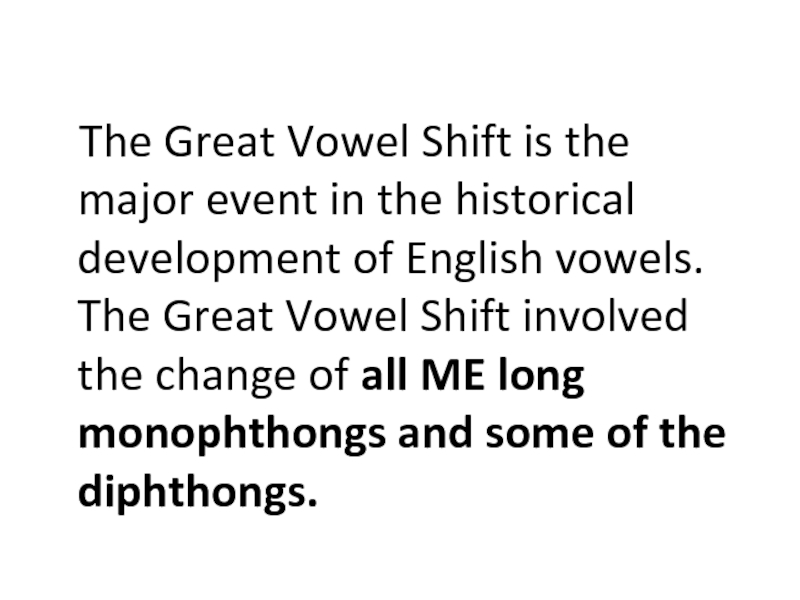
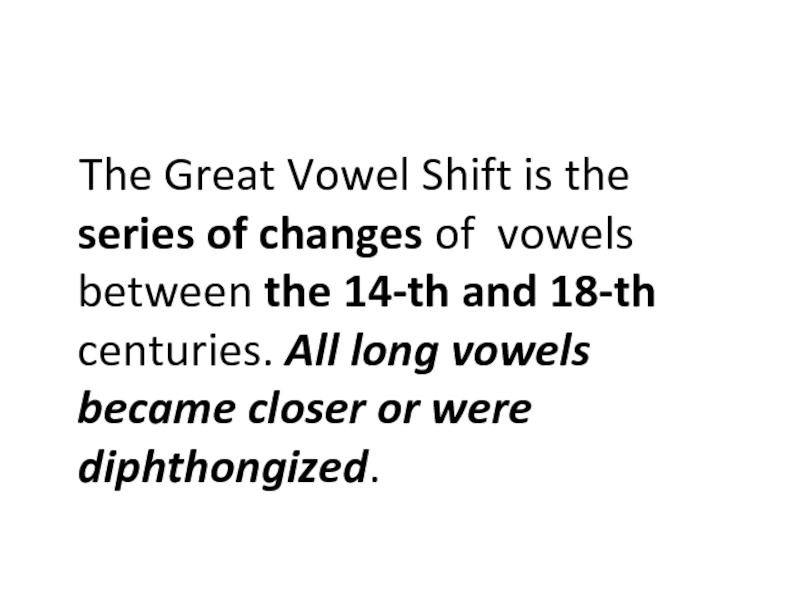
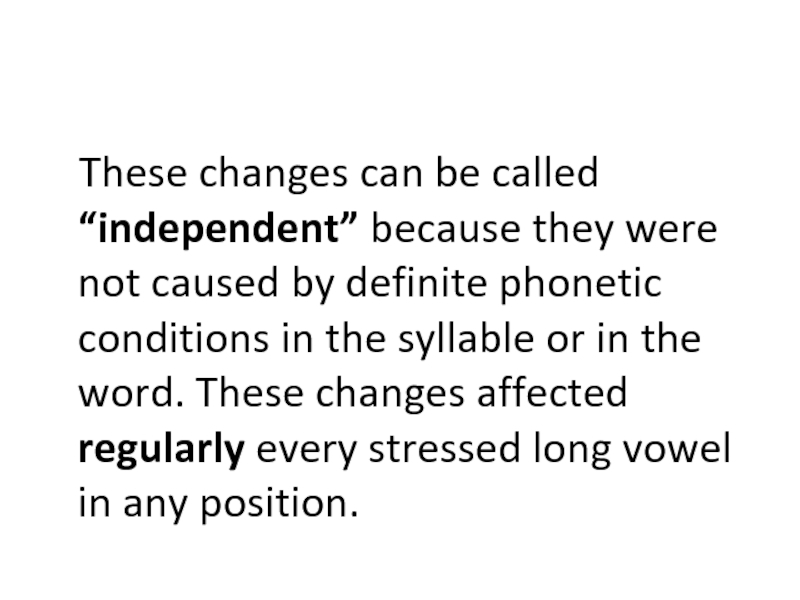
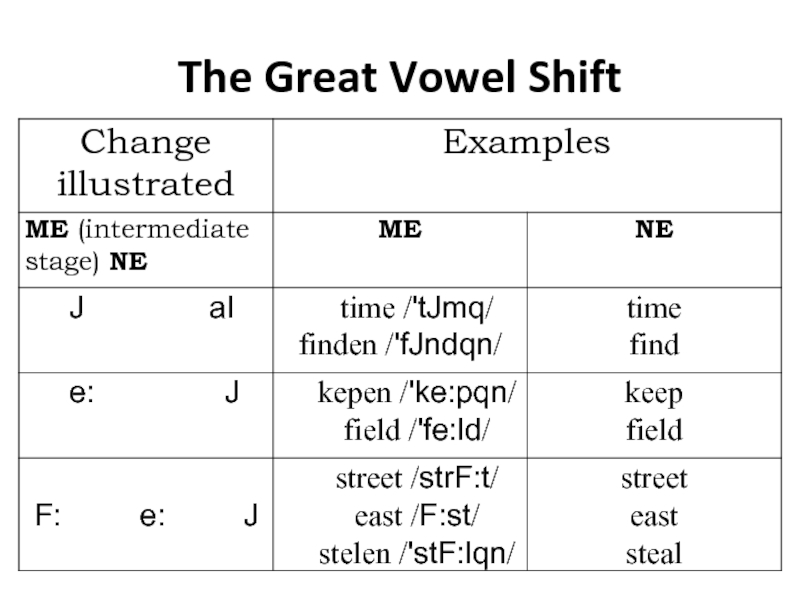
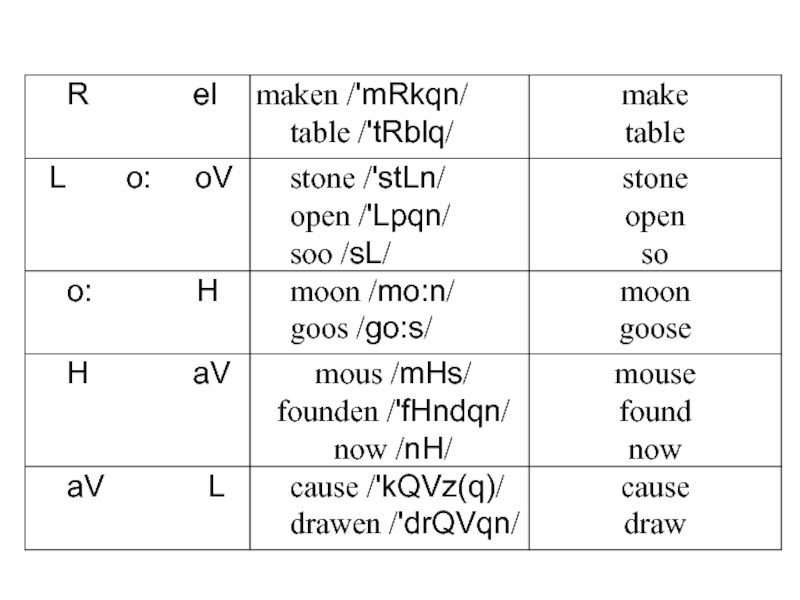


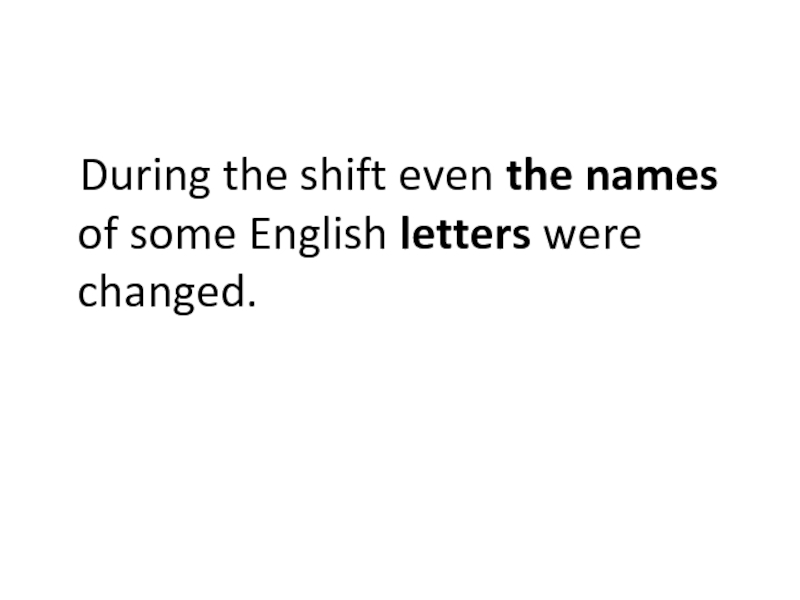
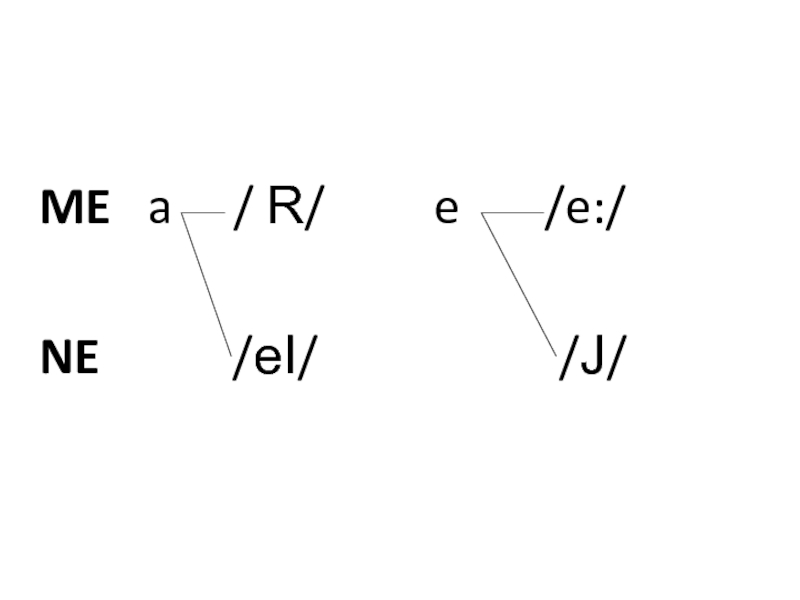



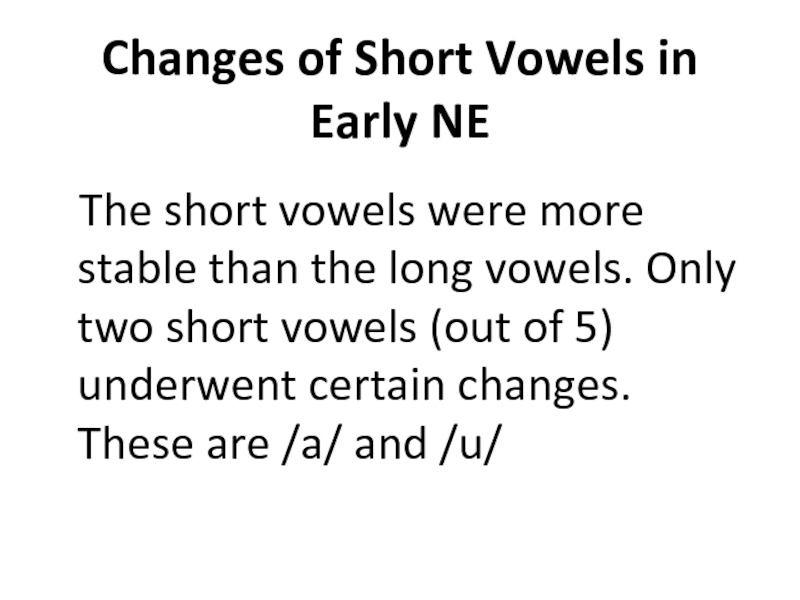

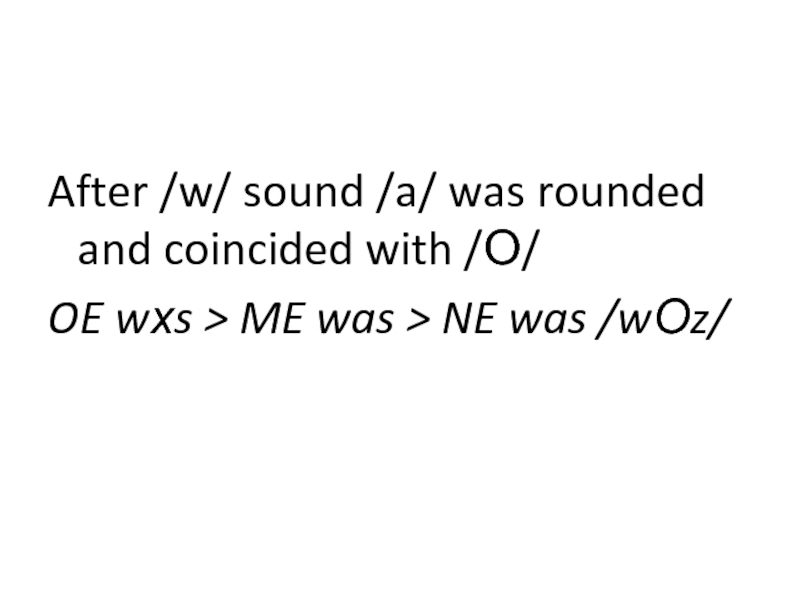
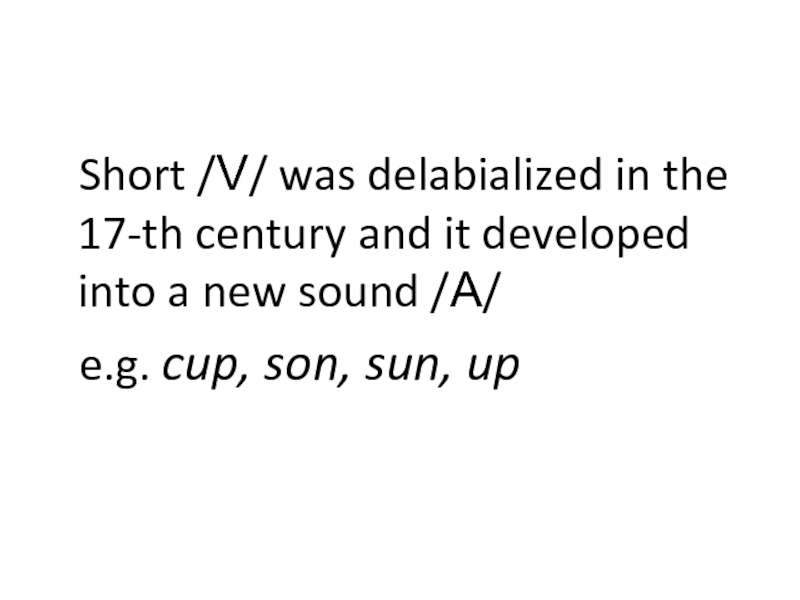
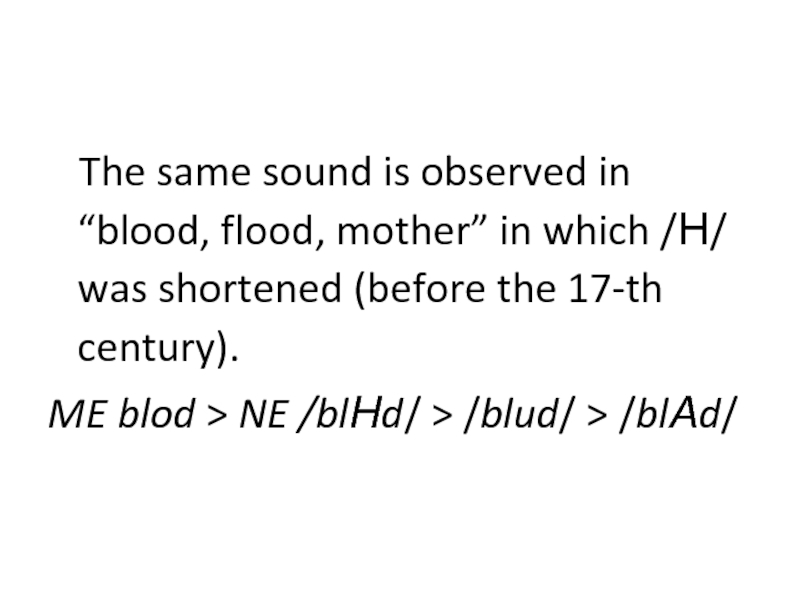
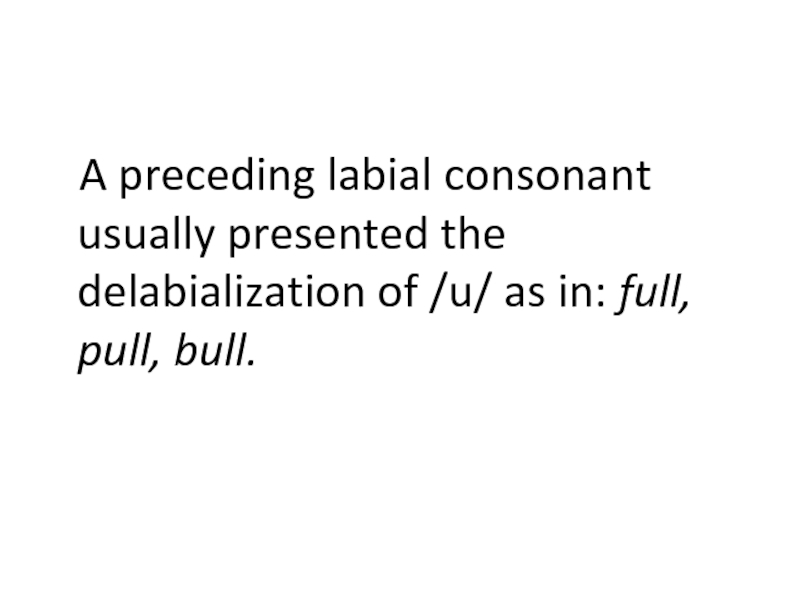
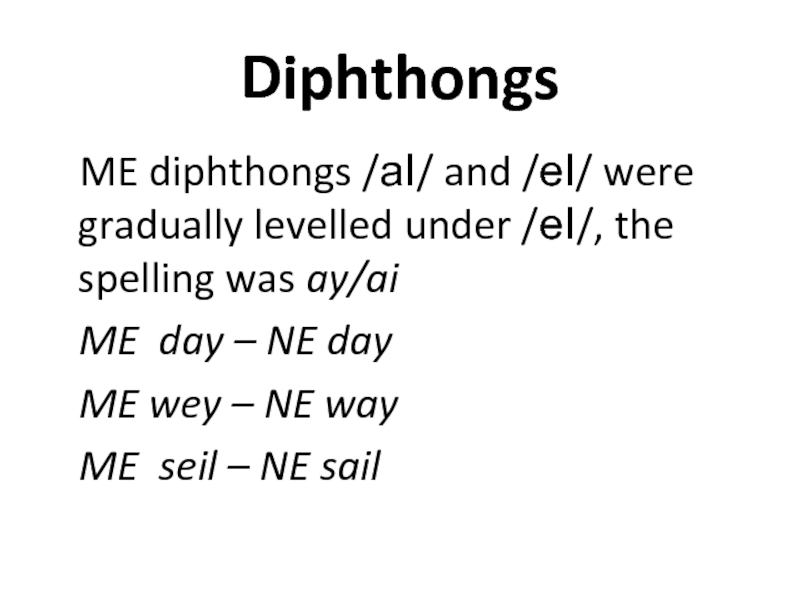
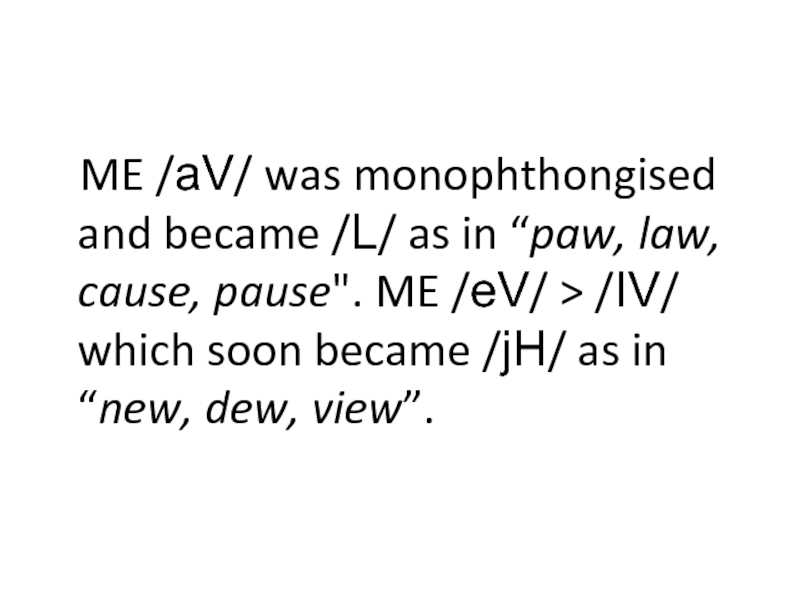 /IV/">
/IV/">